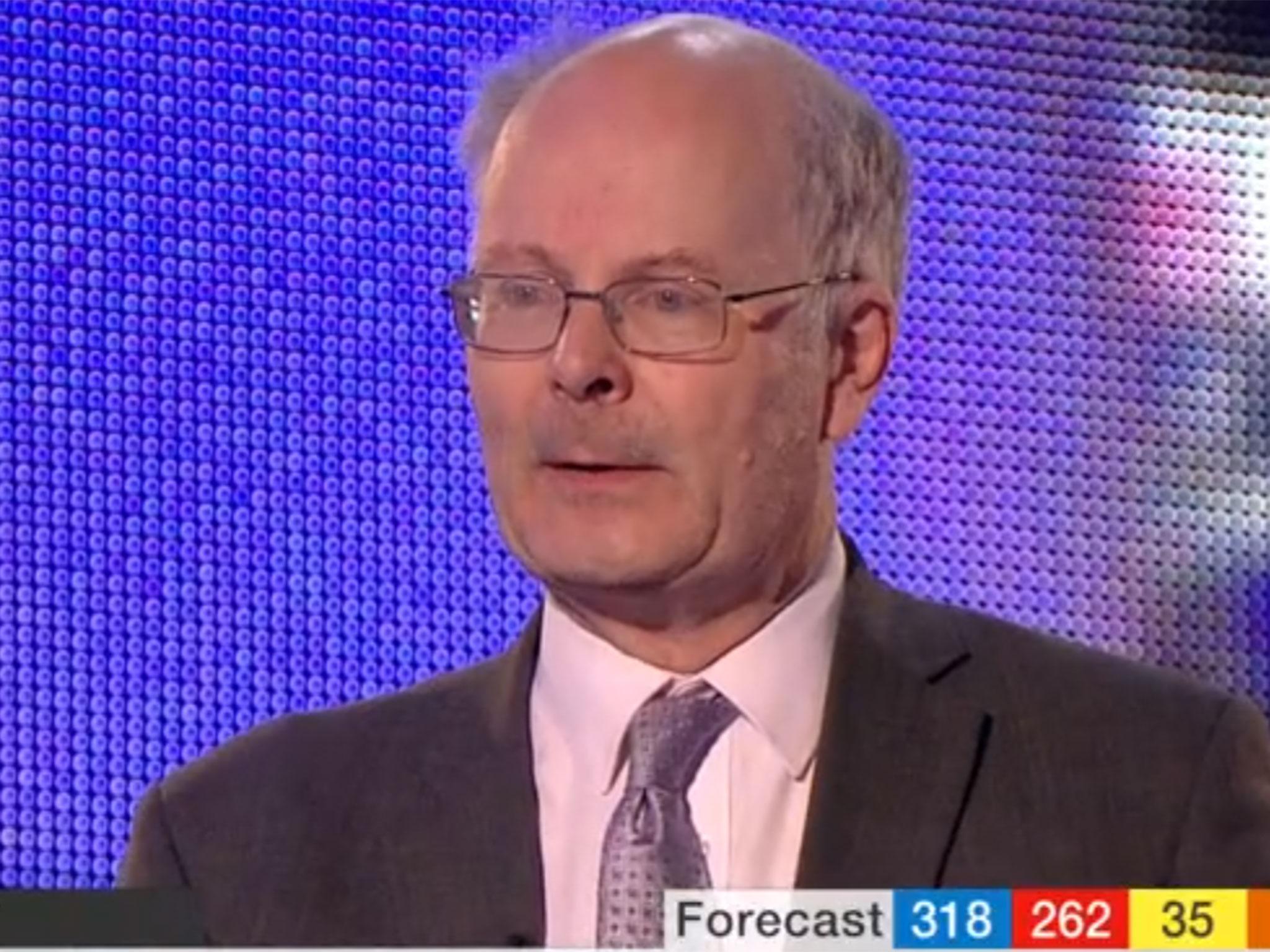General election: One third will vote tactically to keep out the candidate they dislike most, poll finds
Experts believe strategy could change outcome of 12 December vote
Your support helps us to tell the story
From reproductive rights to climate change to Big Tech, The Independent is on the ground when the story is developing. Whether it's investigating the financials of Elon Musk's pro-Trump PAC or producing our latest documentary, 'The A Word', which shines a light on the American women fighting for reproductive rights, we know how important it is to parse out the facts from the messaging.
At such a critical moment in US history, we need reporters on the ground. Your donation allows us to keep sending journalists to speak to both sides of the story.
The Independent is trusted by Americans across the entire political spectrum. And unlike many other quality news outlets, we choose not to lock Americans out of our reporting and analysis with paywalls. We believe quality journalism should be available to everyone, paid for by those who can afford it.
Your support makes all the difference.Almost a third of voters are planning to cast their ballot tactically in the general election to keep out a candidate or party they dislike, a poll has found.
Experts now say the 12 December election could see tactical voting being carried out on a scale never seen before, potentially deciding the outcome and determining whether the UK will finally leave the EU.
Campaigner Gina Miller believes that around 40 per cent of Remain supporters need to vote tactically to prevent a Conservative government from forcing Brexit through in January.
Polls – including the latest BMG survey for The Independent, which has Remain ahead by a margin of 54 to 46 – now consistently show the majority of Britons are in favour of staying in the EU.
The scale of tactical voting required has increased sharply in response to Nigel Farage’s decision not to stand Brexit Party candidates in 317 Tory constituencies. A further 39 Brexit Party candidates in seats held by Labour or the SNP were withdrawn as nominations closed on Thursday, which Ms Miller said had reduced the number of seats where tactical voting has real potential to make a difference from 68 to 51.
There was evidence in the latest poll that Brexit backers are as ready as Remainers to use their vote tactically. Overall, 31 per cent said they would vote for the candidate best positioned to defeat a party they dislike, against 61 per cent who will back their preferred candidate regardless of their likelihood of winning. Some 31 per cent of Remainers and 30 per cent of Brexiteers were ready to vote tactically.
Campaigners for electoral reform said the findings bolstered the case for change to a first-past-the-post system which is driving parties to form electoral pacts and voters to back second-choice or third-choice candidates.
And the poll suggested that voters – who rejected a move to the alternative vote system in a 2011 referendum – may be ready for reform. Some 43 per cent said they would back a more proportional system, against just 18 per cent who oppose it.
In a clear indication that many feel the current system means their vote is wasted, 43 per cent said they felt their vote would have little or no impact on the outcome in their constituency, against 44 per cent who said it would be fairly or very significant.
Polling guru John Curtice, of Strathclyde University, said the election was shaping up as an “unpopularity contest” between Boris Johnson and Jeremy Corbyn, who each record historically high levels of dissatisfaction among voters. With the likelihood of a Labour majority “close to zero”, voters were effectively being asked to choose between a Conservative administration to deliver Brexit or a hung parliament leading to a second EU referendum, he said.
He added: “What will be crucial will be how much anti-Tory tactical voting there is.
“A relatively small number of voters doing it in the right places can make a difference. My judgement at the moment is that with Tories in a 10-point lead, it won’t be enough. But if the lead comes down a bit, maybe it will.”

Ms Miller told The Independent that awareness of tactical voting was far higher than at the last election in 2017, particularly among younger voters. Some 40 per cent of 18- to 24-year-olds in the latest poll said they were considering a tactical vote, against 26 per cent of over-65s.
She said the response to her Remain United website, which offers advice on how to use your vote most effectively to stop Brexit, has been “extraordinary”, with her organisation recording more than 11 million online interactions with voters.
“Tactical voting is much more in the mindset of voters than it was in 2017,” she said.
“We have seen record numbers of young people registering to vote over the past six months and they are very open to the idea of tactical voting. They are talking about it on Facebook and Instagram, which we didn’t see in 2017.”
Tactical voting has far more potential to alter the outcome of the election than the pact between the Remain-backing Liberal Democrats, Greens and Plaid Cymru to stand down candidates in one another’s favour, said Ms Miller.

“The Unite to Remain pact might make a difference in three or four seats,” she said. “In this election, it is all about tactical voting not about party pacts on the Remain side.”
But she cautioned that anyone aiming to vote tactically to block a Johnson majority must keep themselves informed to make sure their actions count.
In 1997 – the last election when tactical voting is believed to have played a major part – it is thought to have accounted for around nine additional Labour wins and 15 to 20 Lib Dem victories, Ms Miller said.
But she added: “Independent research has shown that about 30 per cent of tactical votes in 1997 went the wrong way. We need about 40 per cent of Remain supporters to vote tactically and to do it in the right way to prevent a Conservative majority.”
Ms Miller's remainunited.org site is seeking to help Remainers make their vote count by constantly updating recommendations in response to the developing campaign and frequent 6,000-person polls, she said.
And she will be micro-targeting undecided potential tactic voters with online ads as polling day approaches.
But would-be tactical voters must weigh up for themselves the differing recommendations offered by Ms Miller’s operation and two alternative Remainer advice sites at getvoting.org and tactical-vote.uk.
The director of research and policy at the Electoral Reform Society (ERS), Jess Garland, said the confusion in voters’ minds was the result of a first-past-the-post system which did not reflect the realities of modern political life.
She insisted the answer to the issue was not more sophisticated tactical voting operations, but the introduction of a proportional system, such as the Single Transferable Vote option which the ERS favours.
“We are seeing a huge fragmentation in the party system but we have an electoral system that is designed for two-party politics,” Ms Garland told The Independent.
“This was happening before Brexit but it’s been put into starker relief by Brexit. For the first time in my lifetime, it’s forcing parties to make pacts with other parties and voters to back their second or third choice.
“Both parties and voters are having to change the way they act to try to game the system, and the system is cracking under the strain. It will produce very perverse results.
“Tactical voting websites are trying to paper over the cracks in the system, but voters shouldn’t be driven to play political games like this. They should be able to vote for who they want to vote for.”
For the poll, BMG Research interviewed a representative sample of 1,506 British adults online between 12 and 15 November.

Join our commenting forum
Join thought-provoking conversations, follow other Independent readers and see their replies
Comments